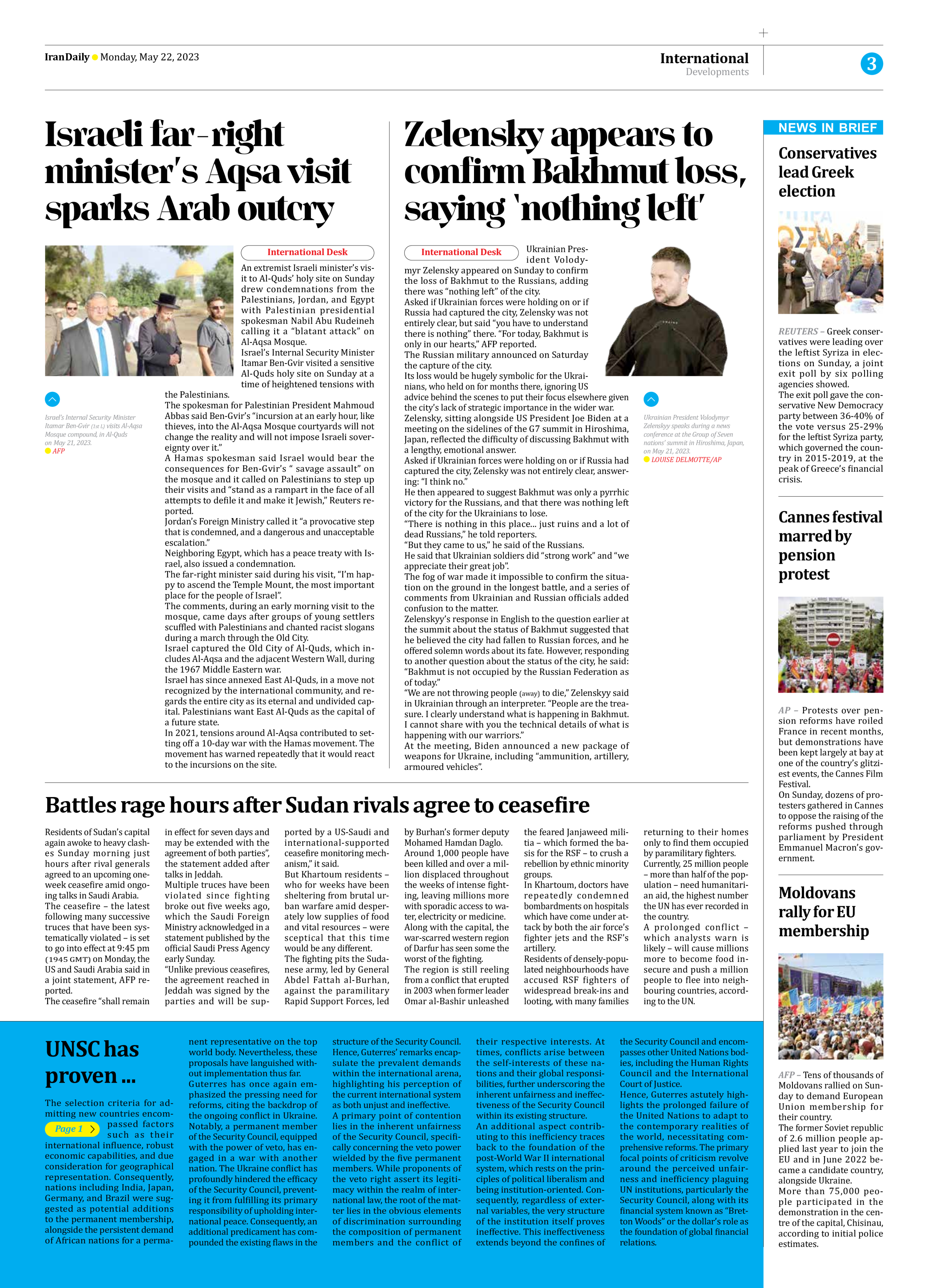
Battles rage hours after Sudan rivals agree to ceasefire
Residents of Sudan’s capital again awoke to heavy clashes Sunday morning just hours after rival generals agreed to an upcoming one-week ceasefire amid ongoing talks in Saudi Arabia.
The ceasefire – the latest following many successive truces that have been systematically violated – is set to go into effect at 9:45 pm (1945 GMT) on Monday, the US and Saudi Arabia said in a joint statement, AFP reported.
The ceasefire “shall remain in effect for seven days and may be extended with the agreement of both parties”, the statement added after talks in Jeddah.
Multiple truces have been violated since fighting broke out five weeks ago, which the Saudi Foreign Ministry acknowledged in a statement published by the official Saudi Press Agency early Sunday.
“Unlike previous ceasefires, the agreement reached in Jeddah was signed by the parties and will be supported by a US-Saudi and international-supported ceasefire monitoring mechanism,” it said.
But Khartoum residents – who for weeks have been sheltering from brutal urban warfare amid desperately low supplies of food and vital resources – were sceptical that this time would be any different.
The fighting pits the Sudanese army, led by General Abdel Fattah al-Burhan, against the paramilitary Rapid Support Forces, led by Burhan’s former deputy Mohamed Hamdan Daglo.
Around 1,000 people have been killed and over a million displaced throughout the weeks of intense fighting, leaving millions more with sporadic access to water, electricity or medicine.
Along with the capital, the war-scarred western region of Darfur has seen some the worst of the fighting.
The region is still reeling from a conflict that erupted in 2003 when former leader Omar al-Bashir unleashed the feared Janjaweed militia – which formed the basis for the RSF – to crush a rebellion by ethnic minority groups.
In Khartoum, doctors have repeatedly condemned bombardments on hospitals which have come under attack by both the air force’s fighter jets and the RSF’s artillery.
Residents of densely-populated neighbourhoods have accused RSF fighters of widespread break-ins and looting, with many families returning to their homes only to find them occupied by paramilitary fighters.
Currently, 25 million people – more than half of the population – need humanitarian aid, the highest number the UN has ever recorded in the country.
A prolonged conflict – which analysts warn is likely – will cause millions more to become food insecure and push a million people to flee into neighbouring countries, according to the UN.







